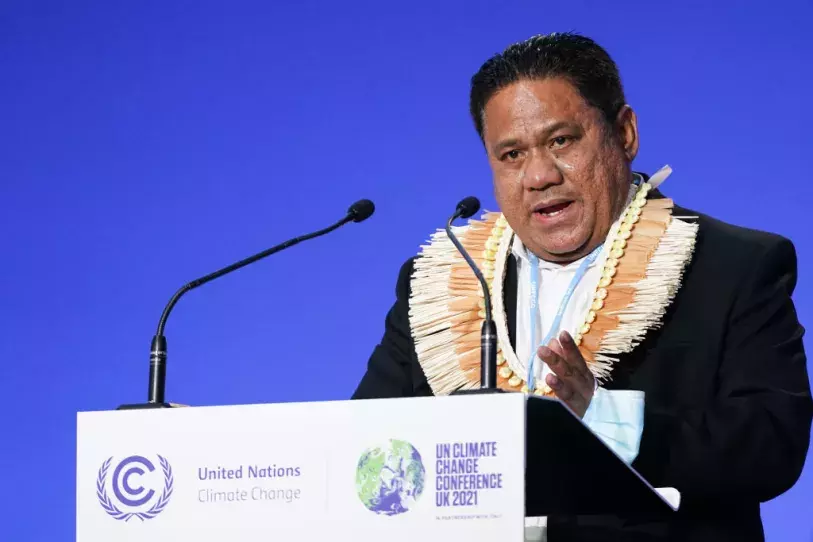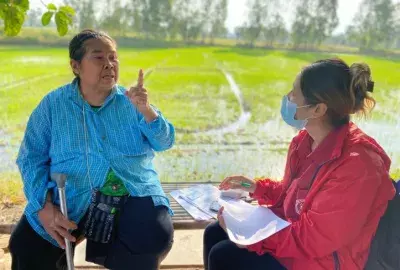
Climate change impacts—temperature and rainfall changes, extreme events, sea-level rise, and ocean acidification—are amplifying health risks in vulnerable populations throughout the Pacific Islands, and also influence their mobility. This nexus of climate change, health, and migration is evident in the experience of the Marshall Islands. The nation and its population are dispersed over almost two million square kilometers of ocean, with sizeable diasporas in the United States. Climate impacts in the Marshall Islands exacerbate ongoing health threats, such as limited drinking water supplies, inadequate nutrition, and poor infrastructure. The out-migration of Marshallese is largely motivated by health, economic, education, and environmental reasons; therefore, planning for migrant movements should include adaptation strategies that also reduce health risks. A better understanding of how health, mobility, and climate change interact will help shape policy responses and provide useable climate information for focused, timely interventions that maximize health and well-being among populations in motion.
Photo: His Excellency Mr. Bruce Bilimon, Minister of Health and Human Services of the Marshall Islands addresses delegates during the high level segment on November 10, 2021 in Glasgow, Scotland. Day eleven of the 2021 climate summit in Glasgow will focus on driving the global transition to zero-emission transport. This is the 26th "Conference of the Parties" and represents a gathering of all the countries signed on to the UN Framework Convention on Climate Change and the Paris Climate Agreement. (Photo by Ian Forsyth/Getty Images)
Climate change impacts—temperature and rainfall changes, extreme events, sea-level rise, and ocean acidification—are amplifying health risks in vulnerable populations throughout the Pacific Islands, and also influence their mobility. This nexus of climate change, health, and migration is evident in the experience of the Marshall Islands. The nation and its population are dispersed over almost two million square kilometers of ocean, with sizeable diasporas in the United States. Climate impacts in the Marshall Islands exacerbate ongoing health threats, such as limited drinking water supplies, inadequate nutrition, and poor infrastructure. The out-migration of Marshallese is largely motivated by health, economic, education, and environmental reasons; therefore, planning for migrant movements should include adaptation strategies that also reduce health risks. A better understanding of how health, mobility, and climate change interact will help shape policy responses and provide useable climate information for focused, timely interventions that maximize health and well-being among populations in motion.
Photo: His Excellency Mr. Bruce Bilimon, Minister of Health and Human Services of the Marshall Islands addresses delegates during the high level segment on November 10, 2021 in Glasgow, Scotland. Day eleven of the 2021 climate summit in Glasgow will focus on driving the global transition to zero-emission transport. This is the 26th "Conference of the Parties" and represents a gathering of all the countries signed on to the UN Framework Convention on Climate Change and the Paris Climate Agreement. (Photo by Ian Forsyth/Getty Images)







